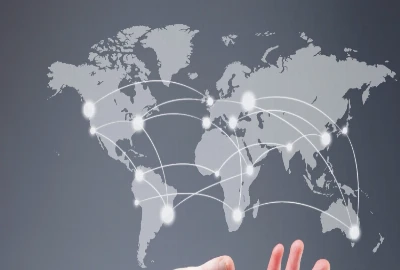Biohacking the Soul: Can We Edit What Makes Us Human?

In the past decade, biohacking has gone from a fringe movement of DIY enthusiasts implanting magnets under their skin to a global phenomenon shaping health, performance, and even identity. From genetic editing with CRISPR to neural implants that merge brains with machines, humanity is moving toward a future where biology is not just inherited—it’s editable.
But with this power comes a question far deeper than biology: can we biohack the soul? If what makes us human lies not just in our DNA but also in our consciousness, emotions, and moral compass, then altering those foundations may not only change our bodies but also reshape our very essence.
This article explores how biohacking collides with philosophy, ethics, and spirituality. It examines whether editing human biology and consciousness risks tampering with the soul—or whether it reveals new possibilities for human evolution.
The Science of Biohacking: Beyond Body Optimization

From Wearables to Genetic Editing
At its core, biohacking refers to interventions—technological, chemical, or biological—aimed at optimizing human performance. This can be as simple as tracking sleep with a smartwatch or as complex as gene-editing embryos to eliminate disease. Biohacking has become a spectrum, ranging from casual lifestyle tweaks to radical self-experimentation with biotech.
CRISPR technology, for example, allows scientists to precisely edit DNA sequences. This raises both promises and perils: eradicating genetic disorders on one hand, while opening the door to designer babies on the other. Similarly, neurohacking techniques, such as brain-computer interfaces, promise enhanced cognition but also raise fears of mind manipulation.
Cognitive and Emotional Enhancement
Biohacking isn’t limited to physical health. Many experiments target the mind and emotions, using nootropics, psychedelics, or brain stimulation devices. These interventions claim to boost creativity, reduce trauma, or expand consciousness. But if we can edit emotions or memories, are we tampering with the very core of the human self?
The Blurred Line Between Human and Machine
As technologies like neural implants become mainstream, the line between human and machine blurs. If our thoughts are influenced—or even generated—by artificial intelligence, is that enhancement or a loss of autonomy? The science of biohacking is not just about extending life; it’s about redefining life itself.
The Soul in Question: What Makes Us Truly Human?

Defining the Soul in a Scientific Age
For centuries, the soul has been described as the essence of human existence, transcending biology and anchoring identity. In religious traditions, the soul is immortal, untouchable by human tools. But in the scientific era, the soul is often reframed as consciousness, self-awareness, or the unique complexity of the human mind. If the soul is tied to these functions, then altering biology and cognition might directly impact it.
Philosophical Views of Identity
Philosophers argue that human identity rests on continuity of consciousness, memories, and moral reasoning. If biohacking changes how we think, feel, or make decisions, then the soul—or at least our sense of self—could be fundamentally altered. Would a genetically enhanced person with modified empathy or intelligence still be the same individual? Or would editing biology create an entirely new being with no link to the original self?
Religious and Ethical Perspectives
From a spiritual standpoint, many traditions view attempts to edit the human soul as hubris—a dangerous overreach into domains reserved for the divine. The fear is that tampering with the soul risks not only individual identity but also the moral fabric of society. Yet, others argue that enhancing humanity could be a fulfillment of spiritual growth, aligning with the quest for enlightenment or transcendence.
Ethical Dilemmas of Biohacking the Soul

The Morality of Editing Human Nature
Should we edit what makes us human? Advocates argue that eradicating disease, extending life, and expanding cognition are ethical imperatives. Critics counter that altering human essence risks creating a world of inequality, exploitation, and dehumanization. The ethical dilemma lies in distinguishing between healing and enhancement—between correcting nature’s flaws and rewriting human identity.
The Risk of Social Inequality
If biohacking technologies remain accessible only to the wealthy, society risks creating a genetic and cognitive divide—a world where the privileged live longer, think faster, and feel differently from the rest. This could institutionalize inequality on a scale far beyond today’s social divides.
Autonomy and Consent
Another ethical concern is autonomy. Can parents consent to biohacking their unborn children? Should individuals be allowed to radically alter their consciousness without societal oversight? When editing biology affects not just individuals but also future generations, the question of consent becomes nearly impossible to resolve.
The Future of Humanity: Transcendence or Transformation?

The Posthuman Possibility
Some futurists believe biohacking will lead to a posthuman era, where humanity transcends its biological limitations. Enhanced intelligence, artificial immortality, and hybrid human-AI consciousness could redefine what it means to be alive. In this vision, editing the soul is not destruction but evolution—a leap toward higher forms of existence.
The Dystopian Risk
Yet, the same technologies could also create dystopias. Imagine a future where governments manipulate emotions to suppress dissent, or corporations sell enhanced empathy as a luxury product. If the soul can be hacked, then freedom itself may be at risk. Biohacking could liberate humanity—or enslave it.
Redefining Spirituality in a Biohacked World
The rise of biohacking may also transform spirituality. Instead of seeking transcendence through meditation or prayer, individuals might pursue it through neurochemistry or implants. This raises profound questions: is engineered transcendence authentic? Or does the soul require struggles and imperfections that no technology can replicate?
Preparing for a World of Soul Hacking

Ethical Frameworks and Regulation
Governments, scientists, and ethicists must collaborate to establish ethical frameworks for biohacking. Clear boundaries between healing and enhancement, protection of individual rights, and prevention of misuse will be essential. Without regulation, the temptation to exploit soul-editing technologies could spiral into dangerous territory.
Education and Public Awareness
For individuals, understanding biohacking’s risks and possibilities is crucial. Public discourse should move beyond hype and fear, focusing instead on informed decision-making. Citizens must know how technologies impact not only their health but also their identity and humanity.
Personal Responsibility and Choice
Ultimately, biohacking the soul may come down to personal choice. Individuals must decide whether enhancing their biology or consciousness aligns with their values. Yet, as these choices affect society and future generations, personal freedom must be balanced with collective responsibility.



